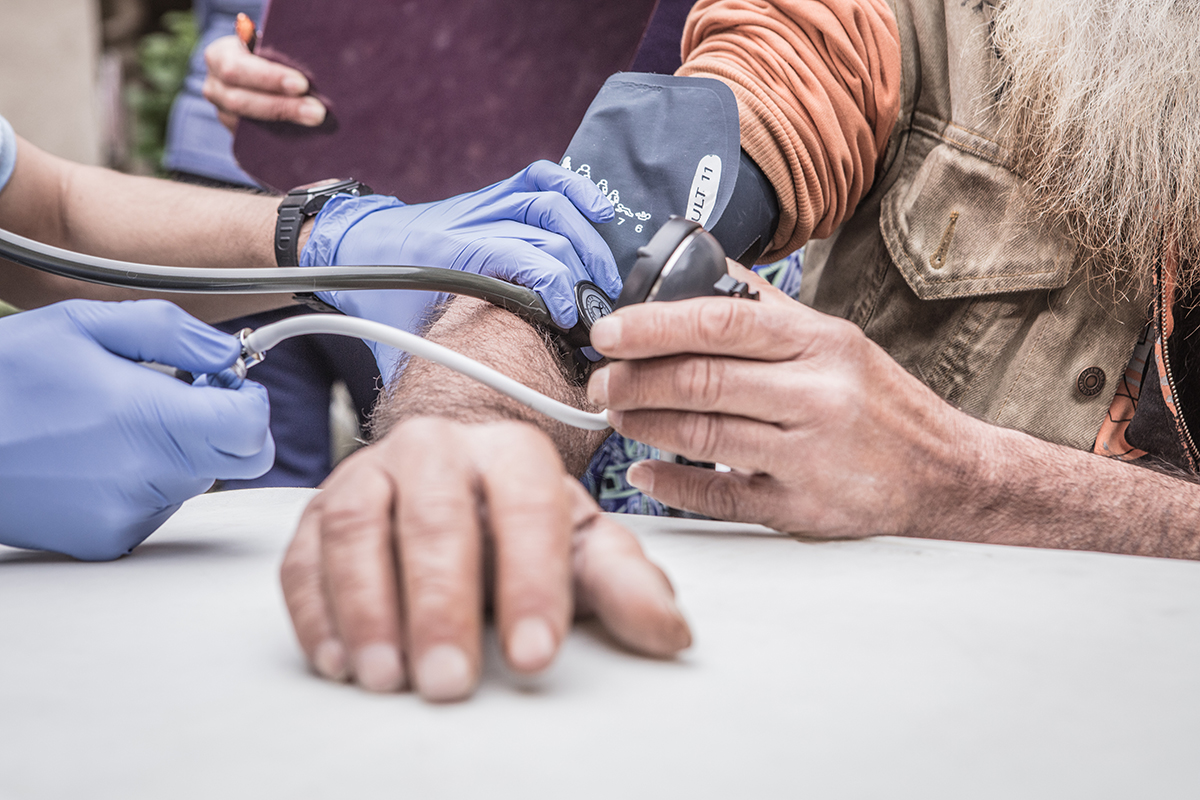Healthy aging is about having the right habits
May 29, 2019

The second halves of our lives can be just as joyful as the first. But a big part of being happy when you’re older is staying healthy. That’s why it’s so important to focus on forming the right habits now that will keep you physically and mentally well as you age.
Let’s go through some of the ways you can stay healthy and happy in your later years.
4 habits for healthy aging
You can lead a full, active life as you get older by making the right healthy aging decisions. Having a positive attitude and following these four steps can make a big difference:
1. Eat right
Did you know you need fewer calories as you get older? But at the same time, your body still needs just as many nutrients as it did before. That means you have to work a little harder to find nutrient-dense foods that will get you your necessary vitamins and minerals, but with fewer calories.
You can maintain a balanced diet by eating from each of these food groups:
Fruits and veggies. Try to “eat from the rainbow” by selecting fruits and vegetables in a variety of colors. The different hues mean you’ll get a range of essential nutrients. Grab purple eggplant, green broccoli, orange butternut squash, red strawberries, blueberries and more.
Protein. Get the protein you need by choosing lean, heart-healthy options like beans, eggs, nuts and seeds.
Whole grains. Choose oatmeal, whole-wheat bread and brown rice to get your fiber.
Dairy. When you have milk or cheese, reach for low-fat or fat-free varietals. You should also try to choose milk that’s fortified with vitamin D and calcium.
On the flip side, there are some foods you should eat less of. Things like sugary drinks, desserts, butter, white bread, crackers, and rice and pastas that are made from refined grains have more calories and fewernutrients. Limiting your consumption will help keep your health in check.
2. Be active
Regular physical activity is also a big part of healthy aging. It’s critical for maintaining a healthy weight, blood sugar level and heart. Plus, exercise creates endorphins, which boost your mood and keep you fromgetting the blues.
As you get older, you want to build an exercise routine that works on improving your endurance, strengthening your muscles, maintaining your balance and stretching your flexibility.
To do all of those things, your routine should:
- Get your heart pumping with activities like brisk walking, water aerobics, yard work or dancing.
- Keep you strong by lifting weights or using resistance bands.
- Improve your stability with tai chi or practicing balancing on one foot.
- Keep you flexible by doing daily stretches.
3. Build relationships
Don’t stop with just diet and exercise. Another important aspect of healthy aging is close connections with family, friends and neighbors. Research has found these relationships can help people live longer and even keep the mind sharp.
Try these tips to develop and maintain meaningful relationships:
- Join a club or pick up a hobby like golf or a bridge group to make new friends.
- Volunteer and meet new people at organizations like Habitat for Humanity, Meals on Wheels or alocal museum.
- Strengthen your current relationship with your spouse or partner by taking a vacation you’ve always wanted to go on or doing something new together.
- Reach out to other family members and friends with phone calls. Make plans for lunch, a walk in the park, a movie or play, or another activity you enjoy.
4. Get vaccinated
As you work on these healthy aging habits, don’t forget to get vaccinated. Keeping up on your doctor’s recommended vaccination schedule will help you avoid getting sick. Talk to your doctor and find out thefive vaccines most adults need.
Sources:Harvard Medical School; National Institute of Diabetes and Digestive and Kidney Diseases; National Institute on Aging; U.S. National Library of Medicine
Related articles

Pediatric team in Oakhurst helping young patients feel at ease
October 1, 2020

His and Hers: How Health Differs Between the Sexes
February 28, 2024

Family Medicine Residency Expands Care Access for Underserved Populations
June 17, 2024